Indigenous Peoples’ Day
Wondering when Indigenous Peoples’ Day is and why it’s celebrated? Here’s what this important day honors and how it’s observed across the U.S.
When is Indigenous Peoples’ Day?
Indigenous Peoples’ Day – Monday, October 13, 2025
Indigenous Peoples’ Day is observed on the second Monday of October—the same day as the federal holiday Columbus Day.

| Holiday | Year | Day of the week | Date |
|---|---|---|---|
| Indigenous Peoples’ Day | 2024 | Monday | October 14, 2024 |
| Indigenous Peoples’ Day | 2025 | Monday | October 13, 2025 |
| Indigenous Peoples’ Day | 2026 | Monday | October 12, 2026 |
| Indigenous Peoples’ Day | 2027 | Monday | October 11, 2027 |
| Indigenous Peoples’ Day | 2028 | Monday | October 9, 2028 |
| Indigenous Peoples’ Day | 2029 | Monday | October 8, 2029 |
| Indigenous Peoples’ Day | 2030 | Monday | October 14, 2030 |
| Indigenous Peoples’ Day | 2031 | Monday | October 13, 2031 |
| Indigenous Peoples’ Day | 2032 | Monday | October 11, 2032 |
| Indigenous Peoples’ Day | 2033 | Monday | October 10, 2033 |
| Indigenous Peoples’ Day | 2034 | Monday | October 9, 2034 |
| Indigenous Peoples’ Day | 2035 | Monday | October 8, 2035 |
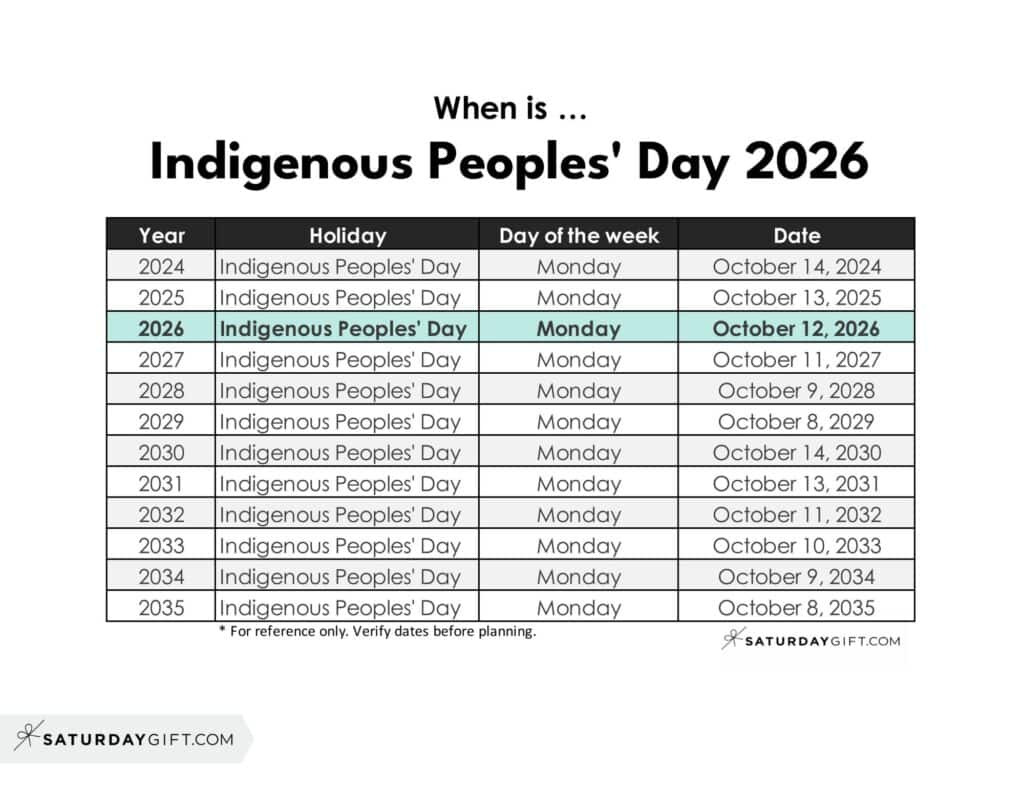
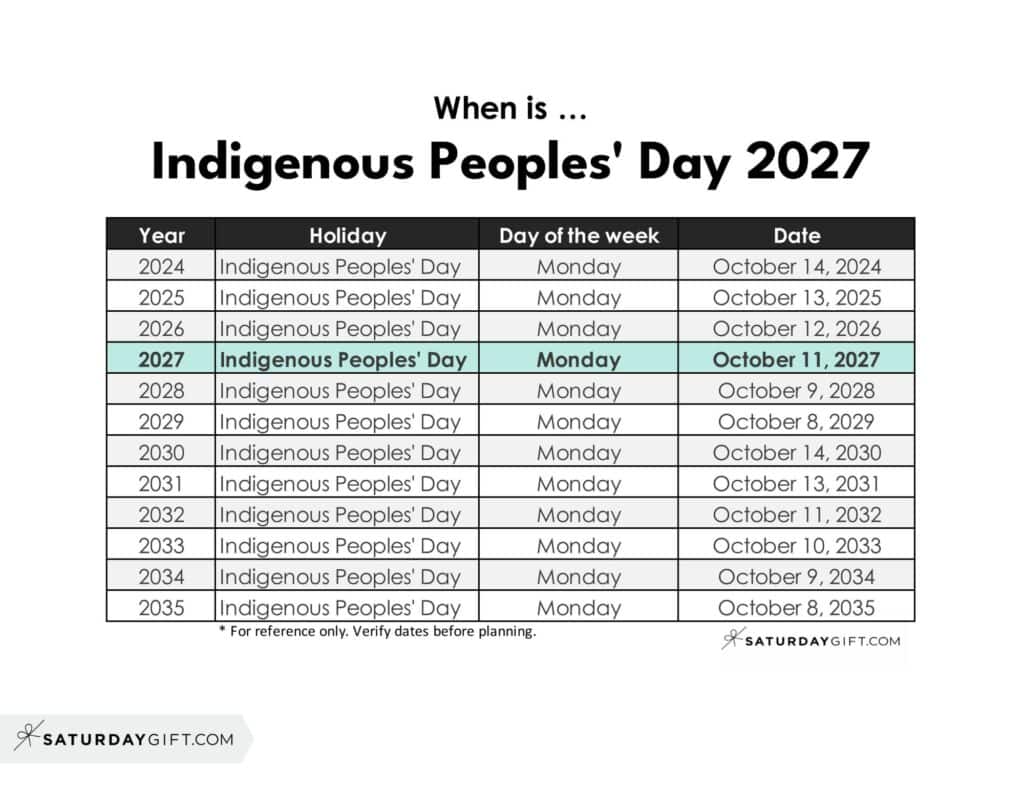
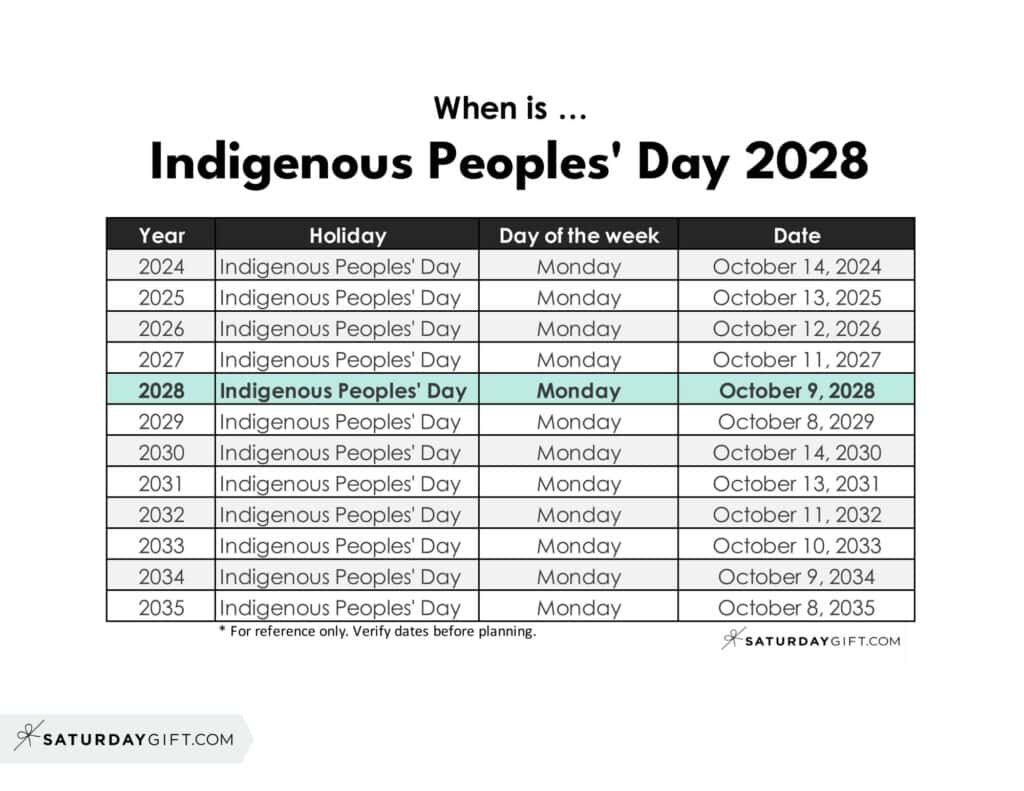
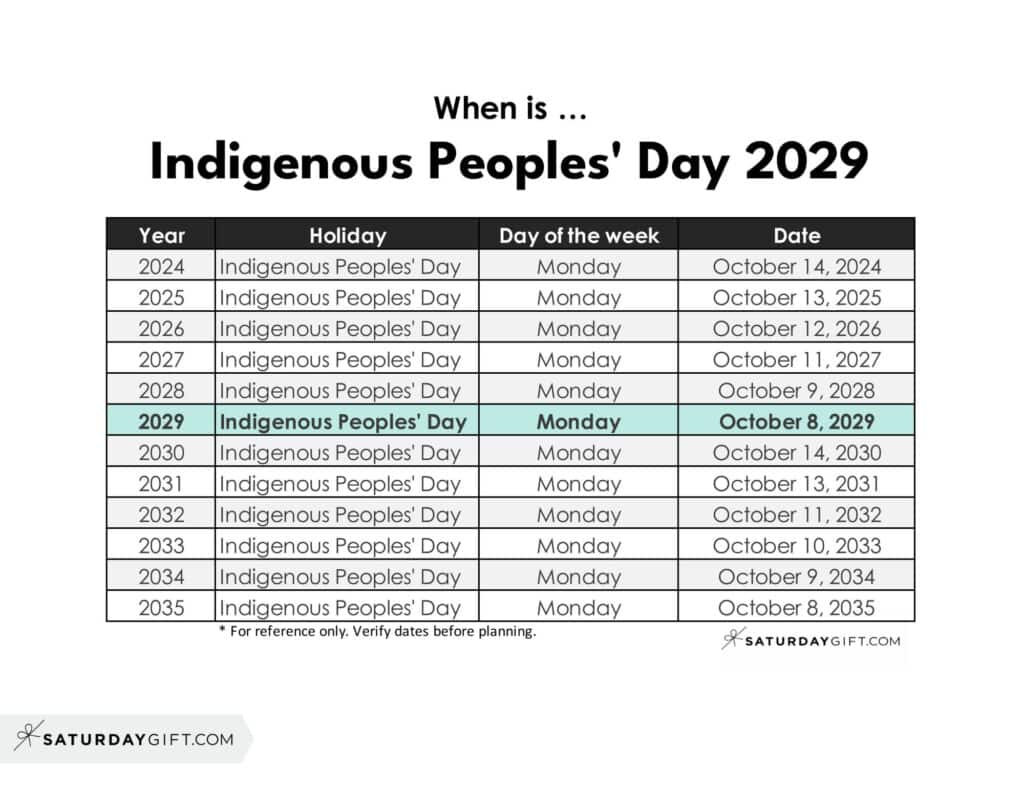
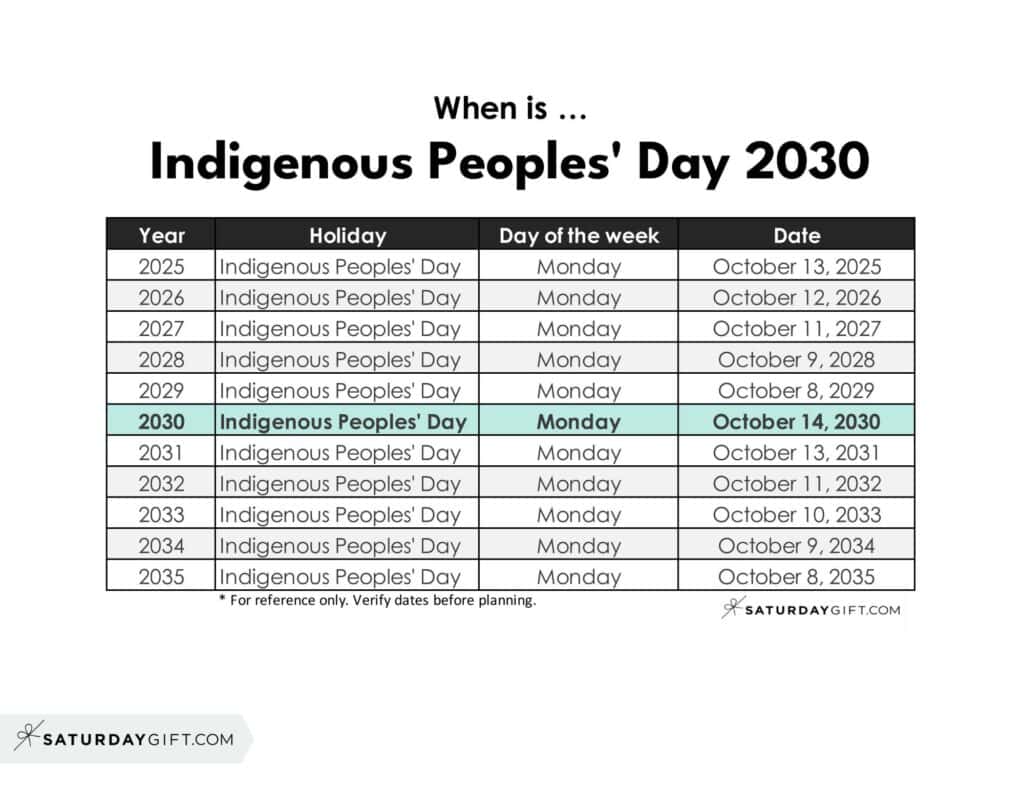
What is Indigenous Peoples’ Day?
Indigenous Peoples’ Day is a day to honor and celebrate Native American peoples, cultures, histories, and contributions. It also serves as a time to acknowledge the enduring strength and resilience of Indigenous communities.
The holiday began as a counter-celebration to Columbus Day, recognizing that for many Indigenous people, Columbus’s arrival marked the beginning of centuries of displacement and injustice. Instead, this day shifts the focus to celebrating the vibrant traditions, voices, and identities of Native peoples throughout the Americas.
Is Indigenous Peoples’ Day a Public Holiday?
Indigenous Peoples’ Day is not yet an official federal holiday, but it is gaining recognition across the United States.
Many states, cities, and schools observe it either in place of or alongside Columbus Day, which is still a federal holiday.
Columbus Day has long been a point of controversy. While it traditionally honored the arrival of Christopher Columbus in the Americas, many people—especially Indigenous communities—view it as a painful reminder of colonization, forced displacement, and centuries of injustice.
Recognizing Indigenous Peoples’ Day instead offers an opportunity to shift the focus toward honoring Native cultures, resilience, and contributions, and to encourage more inclusive, accurate storytelling about American history.
So while it may not be a federal holiday (yet!), it’s becoming increasingly important—and meaningful—for communities across the country.
How is Indigenous Peoples’ Day Celebrated?
🪶 Cultural festivals, ceremonies, and performances
📚 Educational events, panel discussions, and storytelling
🎨 Art exhibits and community gatherings
🌎 Honoring ancestral lands and Indigenous voices
Interesting Facts About Indigenous Peoples’ Day
• South Dakota was the first U.S. state to replace Columbus Day with Indigenous Peoples’ Day—in 1990.
• The holiday is officially recognized in places like California, Maine, Minnesota, New Mexico, and Washington D.C.
• Some schools and universities hold teach-ins to educate students about Native history and culture.
• The movement to recognize Indigenous Peoples’ Day continues to grow as part of a broader effort toward reconciliation, awareness, and respect.
Printable Calendars
Grab free printable yearly and monthly calendars to stay organized all year long!
Yearly Calendars
If you're looking for cute SaturdayGift year-at-a-glance calendar template printables, you can find them from these posts.
Monthly Calendars
Here you can find cute & free printable SaturdayGift calendar designs:
